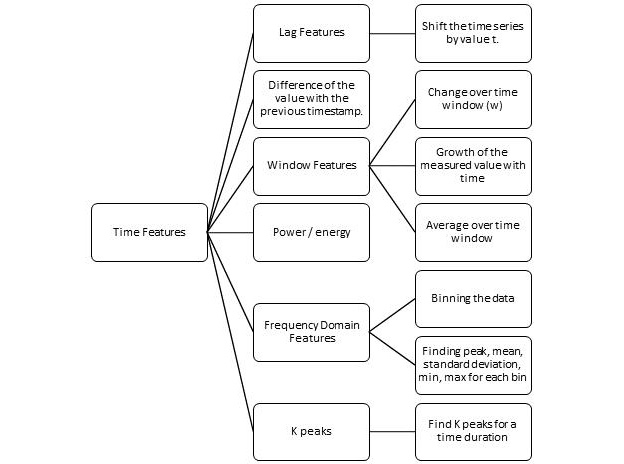Time Series Features
Time series data is a special type of data where some quantities are measured over time, and therefore it contains data along with the timestamp. An examples would be stock prices and forecasting of the market, where we would have a stock name, stock value, and time as the time series data.
The following figure presents some time series features:

Figure 3.3: Time series features
The time series features are as follows:
- Lag features: Using the lag feature of time series data, we can shift the time series data values by a specific value.
- Difference in value of timestamp: In time series data, it is important to derive the difference between timestamps.
- Window Features: Window features are features that tend to change over a fixed interval of time (window). These could be measured using the change over time window, growth of measured value with time, or average over time window.
- Power/Energy: This features denotes the power consumption...



























































